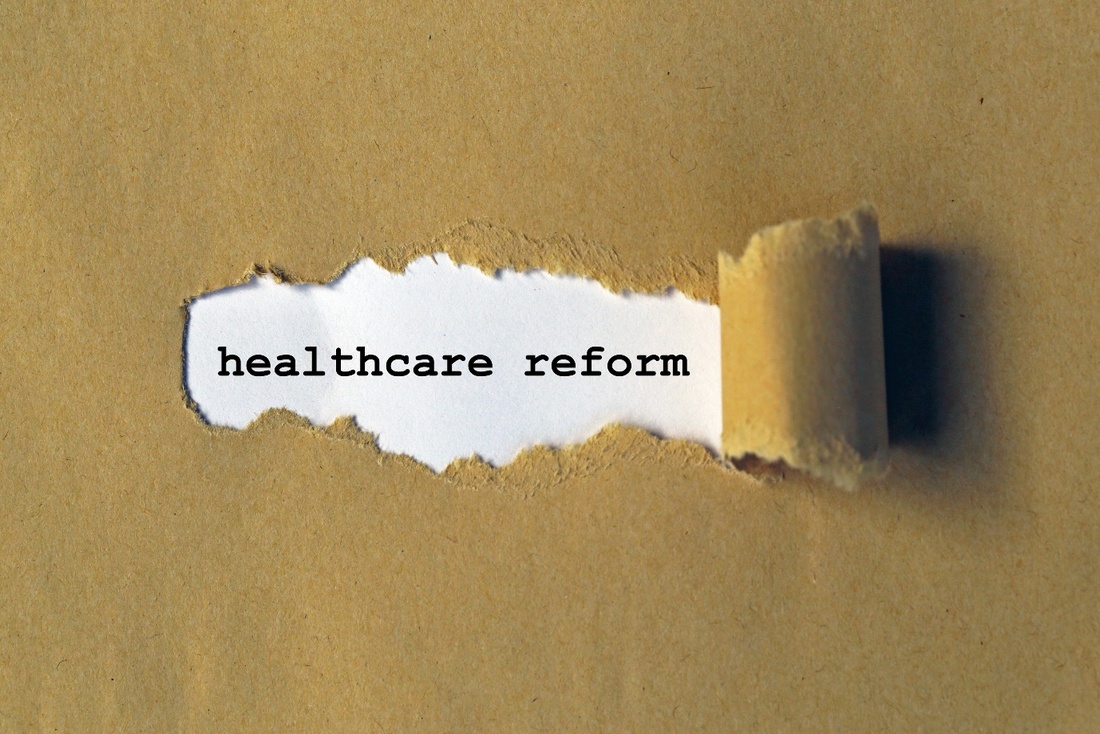
We're at a significant crossroads in the U.S. wellness plan. The leadership for American healthcare in 2021 and beyond will be based in large part on events that are unfolding today, and that is going to come to fruition in the first half of 2021.
Supreme Court Decision
Foremost on the minds of several wellness plan watchers in California v. Texas, the impending lawsuit on the ACA before the Supreme Court. In the event the Court decides that the mandate is unconstitutional, it will also consider whether a few or all the ACA's other provisions have to be struck down together with the mandate.
In NFIB, the plaintiffs alleged that the patient mandate was unconstitutional because Congress's ability to regulate interstate commerce doesn't extend to requiring individuals to take part in trade (by purchasing health insurance). Even though the Supreme Court agreed with this argument, Chief Justice John Roberts's opinion famously resisted the ACA by holding that the person mandate could be hailed as an illegitimate effort to exercise the trade power, however as a permissible tax on individuals who don't enroll in medical insurance.
In 2017, however, Congress amended the ACA to modify the quantity of this"taxation" to zero, but it abandoned the person mandate nominally about the novels. The California v. Texas lawsuit followed -- together with the plaintiffs asserting that, because the mandate can't create any tax earnings, it cannot be construed as taxation any more and therefore is unconstitutional. The plaintiffs further assert that, when the mandate is broke down, the whole ACA has to be invalidated with it since the ACA statute didn't have a severability clause.
How would the Court's judgment change the medical care policy picture? There are many possible outcomes. As a first chance, the Court may realize that the plaintiffs in the event lack standing to bring their struggle in any way. Since this lawsuit assumes that there are not any legal consequences of breaking up the person mandate, the Court might decide that nobody is harmed by it and consequently nobody has the standing to sue about it. That would prevent any judgment on the merits and could continue the status quo.
But, Texas and other countries challenging the mandate seem to have great arguments that, though the quantity of this"mandate tax" has been reduced to zero, they nevertheless need to bear certain paperwork and administrative costs associated with it. That might well be sufficient to give them status.
When the Court reaches the merits, then it of course could uphold the now-toothless human mandate supply as a legitimate exercise of Congress's authority under the Commerce Clause or its capacity to levy (and suspend) taxes. Such a result would solidify the present medical care landscape and probably provide momentum for additional maturation of the ACA trades and related enrollment periods.
There's a presumption in favor of severability, which could be the most tumultuous (therefore arguably the very conservative) outcome. A range of commentators finds this to be the most probable choice for the Court to achieve. Under this result, opponents of this person mandate might declare victory, but as a practical matter, the main details of the ACA will stay in force. Experience because 2014 has proven that the ACA exchanges can very likely operate and provide a steady risk pool with no individual mandate.
The argument for this holding could be that, when Congress enacted the ACA, it considered guaranteed issue, community evaluation as well as the mandate because a"three-legged stool" of insurance reforms, every one of which had been needed to make others work correctly. (The counterargument would be that Congress should have changed this opinion from the time that it decreased the mandate taxation to zero while departing guaranteed issue and community rating set up.) In the event the Court took this course, it would probably cripple the ACA trades as they now function, demanding immediate legislative action to tackle the circumstance.
Last, the maximum unprobably -- but potential -- consequence: The Court could hit the ACA in its entirety, on the concept that the person mandate was so fundamental, in its absence, Congress would have chosen no ACA whatsoever to an ACA with no individual mandate. If folks discuss the ACA, they generally consider their medical insurance regulations which are generally known as"Obamacare": the trades, protections for individuals with preexisting conditions, limits on out-of-pocket expenditures, allowing young adults to remain in their parents' insurance before age 26 and comparable coverage reforms. Therefore it's easy to overlook that the ACA comprises considerably more than that. It could be possible, albeit improbable, for the Supreme Court to maintain that striking down the person mandate necessitates hitting down all these terms too.
A flurry of regulatory and legislative action probably would happen, and once more the American healthcare system could have basic changes.
During oral arguments, both Chief Justice Roberts and Justice Brett Kavanaugh made remarks suggesting that they had been doubtful about striking down other areas of the ACA due to the alleged infirmity of their amended person mandate. Justice Roberts commented that it's"our job" to strike down provisions of the ACA which Congress at 2017 left undamaged. Justice Kavanaugh noted that his opinion that it was"fairly obvious" that the patient mandate ought to be deemed severable under the Court's precedent. Notably, each of the justices appeared interested in the status issue also, indicating a risk that the Court might choose not to achieve the merits.

Election Outcome
In the previous ten years, a new political truism has grown one of national authorities watchers: In the event, the governing party messes a lot with healthcare, it generally gets clobbered in another election. It began in 2010, once the ACA was enacted in March along with also the Democrats' congressional delegations were sharply decreased in the November midterm election. Then 2017 and 2018, the Republicans attempted to get several healthcare protections -- and that they dropped badly in the 2018 midterm. That can be a cautionary tale for any politician that wants to handle healthcare: Tinkering at the edges normally has been a far safer strategy significantly than wholesale change.
However, the conclusion of Senate management won't be determined before both Georgia runoff races in January.
In the event the Court doesn't strike down any substantial section of the ACA, Senate watchers forecast that Sen. McConnell probably will be centered on thwarting President-elect Joe Biden's judicial nominees and his cabinet selections or alternative political appointments, in addition to ensuring the Senate meets its conventional role of being"that the saucer that cools the tea" from the legislative procedure. Thus, House Democrats and President-elect Biden could have restricted legislative choices on medical care. Most modifications consequently would arrive in the shape of regulatory activities and executive orders.
Conclusion
While this discussion has made clear, overdue 2020 and ancient 2021 indicate a significant inflection point for U.S. healthcare coverage. While the selection of directions where things can go from here has somewhat narrowed as a result of the possibility of split Congress, there are lots of health policy changes that may be expected, especially in the executive branch.
Whatever policy management the near future brings, but 1 thing is sure: Developments within the upcoming few weeks are going to end in a major tide of follow-on lawsuit in 2021 and beyond. Lawsuits from the Department of Health and Human Services (HHS) and CMS have become the"new normal," together with the courts being asked to rule on topics which range from website neutrality to foil regulations to 340B reductions to Medicaid work demands, plus even more.
As is typical in this region, but the type of healthcare lawsuit that 2021 will bring depends mostly upon the Supreme Court's forthcoming decision and about the final result of both runoff Senate parties. The Faegre Drinker group of lawyers, and government relations, and public policy professionals and lobbyists will be here to allow you to navigate the legal, political, and policy waters in the months beforehand.
